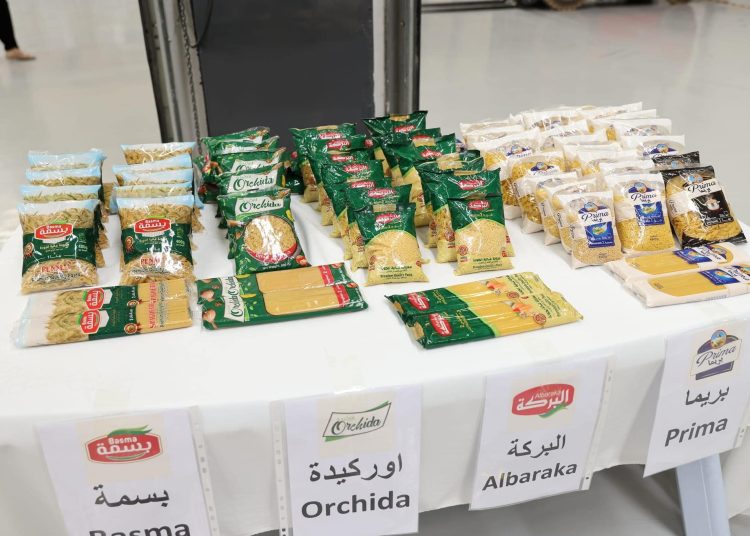Libya’s Tripoli-based Prime Minister, Abd Alhamid Aldabaiba, accompanied by the Minister of Economy and Trade, Mohamed Al-Hwej, the Minister of Industry and Minerals, Ahmed Abu Hisa, the head of the General Union of Libyan Chambers of Commerce, Industry and Agriculture, Mohamed Al-Raied, and the head of the Libyan Industry Union, Rashid Swani, inaugurated last Monday the industrial complex of Al-Sahl Holding Group in the Al-Sayeh Industrial Zone, south of Tripoli.
In an exclusive interview with Libya Herald, the General Manager of Al-Sahl Holding Group, Ahmed Gadad, stated that this industrial complex includes more than ten factories and is one of the largest and most modern factories in Africa and the largest Libya. It contains factories for fodder, rice, flour, semolina, pasta, cooking oil, baby diapers, confectionary, and sugar.
Employing 3,000 local staff
He said the complex employs more than 3,000 Libyan employees and producers who have been trained and qualified by foreign engineers and experts in the fields of automatic control, food manufacturing, quality control, and maintenance of equipment and machinery. In addition, there are hundreds of other indirect jobs in the Libyan market, which depend on dealing with group’s companies for their work.
Brands have become household names – aiming to export
Gadad added that all the factories of the complex are operated by advanced technical methods, and the latest means and devices are used in manufacturing and quality control, and all operations are automated in most production processes for various products without direct human intervention except in a few stages. He said the complex manufactures brands that have become household names in the Libyan market, with the endeavour to export to the African market from all sectors, whether the food sector, the health care sector, and the fodder sector, which is a source of pride for Libyans and the Libyan industry.
To penetrate Africa with local products
Gadad concluded by praising the efforts of the Libyans within the group, who were able to contribute to the journey of rebuilding Libya, supporting the local economy, and building a plan to enter the African continental market with completely local products. This will work on the sustainability necessary for growth and prosperity, which requires industrial integration that supports construction, encourages partnerships between the government and private sectors at home and abroad, and opens horizons for cooperation and exchange of economic benefits with neighbouring countries.
Largest pasta, couscous and semolina factory in North Africa opened in Libya (libyaherald.com)
Whiba Holding’s Al-Safwa brand pasta and couscous factory starts operations (libyaherald.com)
PM Aldabaiba opens new Aljaied cheese production line (libyaherald.com)
Libya and Niger sign transit road implementation MoU (libyaherald.com)









